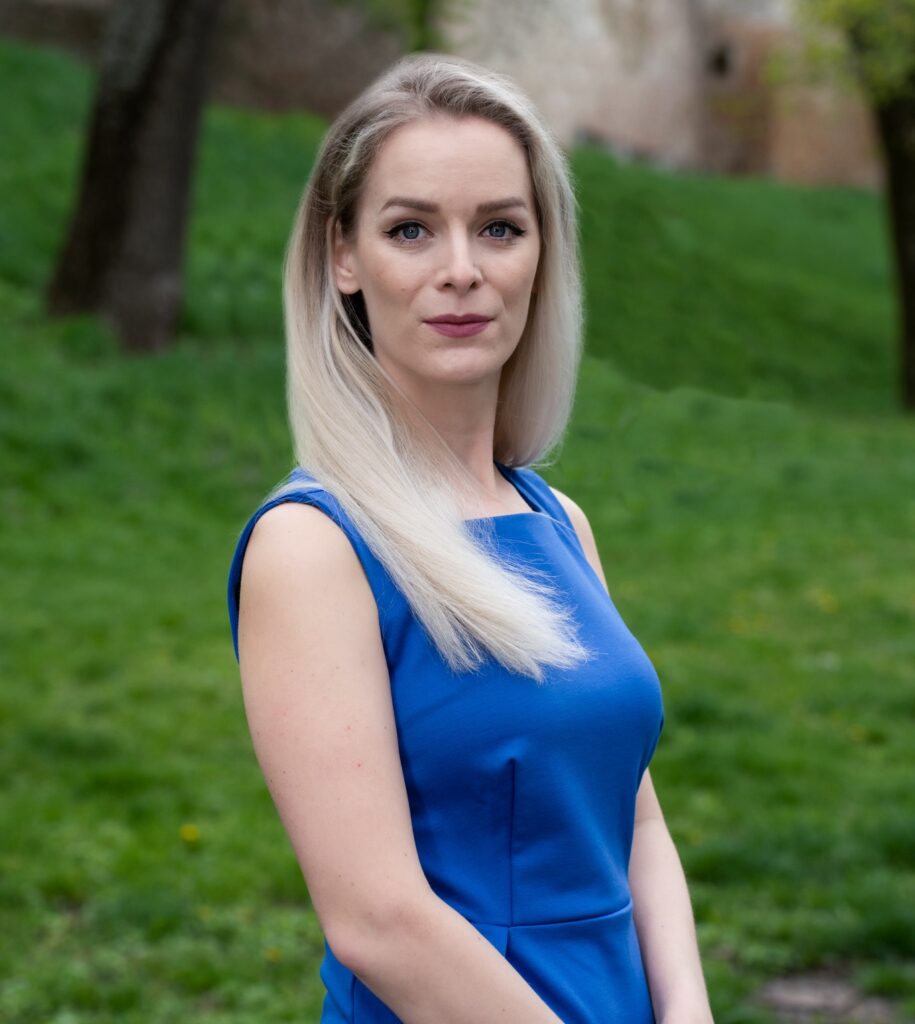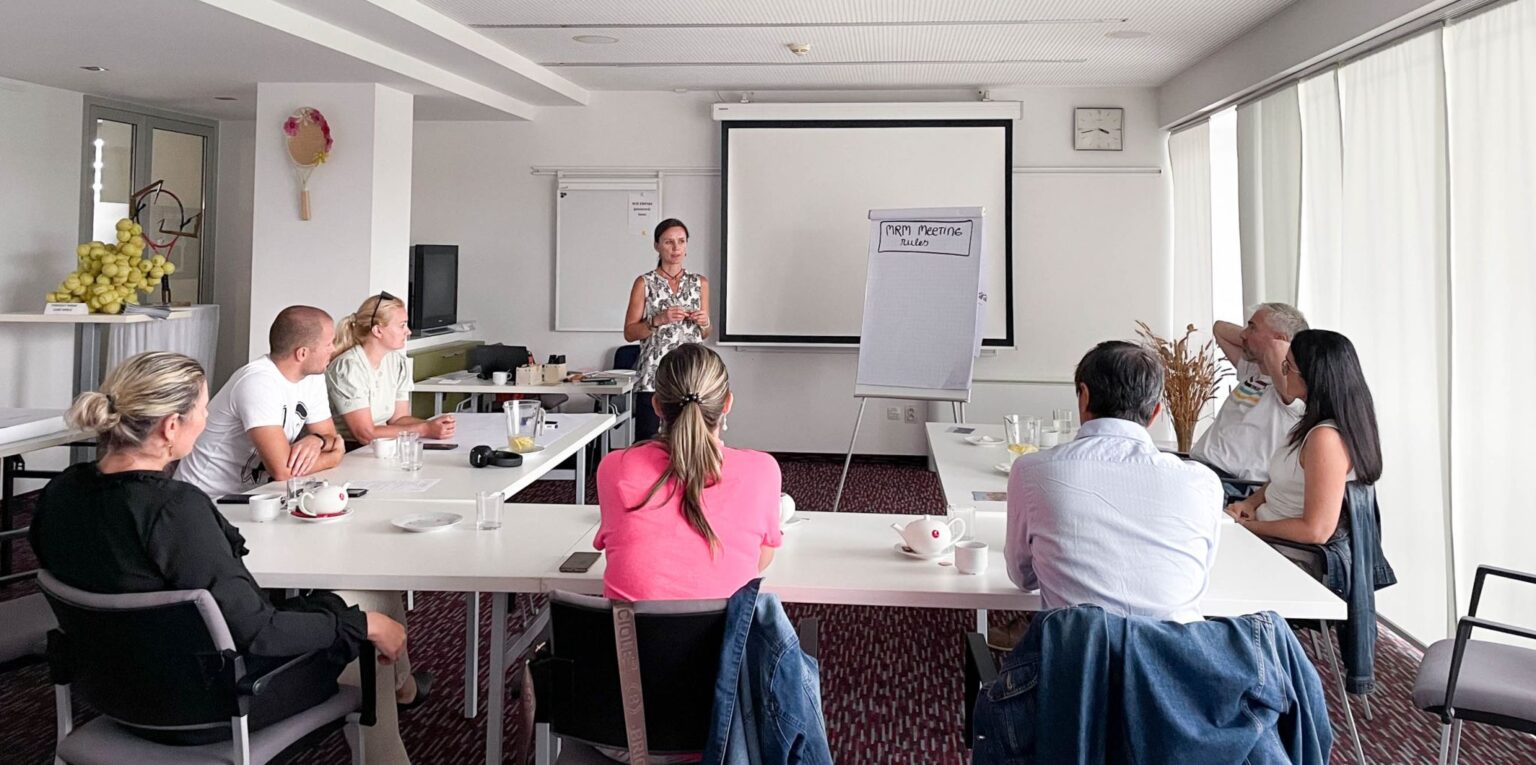Improving team cooperation
This year, thanks to our collaboration with Nikola Sedláčková from Eventin, we managed to improve internal communication and support team spirit through a series of workshops on The Five Pillars of a Functional Team. The Five Pillars of a Functional Team is a concept of several loosely connected workshops that the entire Cargo Wagon team gradually attended.
Cargo Wagon regularly organizes various types of training sessions to support the professional development of its employees. This year, thanks to our collaboration with Nikola Sedláčková from Eventin and through a series of workshops on the Five Pillars of a Functional Team, we managed to improve internal communication and support team spirit.

How does our HR manager Nikola Bažíková see it?
We met Nikola Sedláčková more or less by chance when we were preparing a teambuilding event in the summer of 2021. The joint workshop on teamwork had a very good atmosphere and led us to reflect on how our team functions and where communication fails. Our managers Amit and Pavel started actively working with employee feedback, and when they gained full support from the entire team, it was just a step towards further joint training sessions.
Nikola is a person who very sensitively guided us through the labyrinth of team cooperation and communication. She helped us initiate changes that made our work more efficient and the working environment much more positive. Therefore, we continue to cooperate with her in individual training and coaching.
In a small company of up to twenty employees, such as Cargo Wagon, practically every position involves a wide range of diverse activities that an employee should be able to handle. Besides their routine activities, each team member works on project tasks, some of us in several teams simultaneously. This means that each of us holds a lot of information potentially important for other team members. Good teamwork and effective communication greatly facilitate achieving better results. On the other hand, personal conflicts can completely freeze project implementation.
On the second day of the seminar, we started with the Thomas-Kilmann Conflict Mode Instrument. This model can be very well applied to decision-making in a corporate environment. It combines levels of assertiveness or cooperation and the tendency towards conflict or compromise. Based on this, it divides our behavior into five styles: competitive, cooperative, compromising, avoiding, and accommodating. In our company, we have representatives of all these categories, and by comparing results, we could discuss why each of us behaves in a certain way in conflict situations. We also discussed alternative approaches to successfully reaching consensus.

The Five Pillars of a Functional Team is a concept of several loosely connected workshops that the entire Cargo Wagon team gradually attended. The training content is inspired by the book by popular HR expert Patrick Lencioni and focuses on building trust among employees, eliminating the fear of conflicts, finding common commitment, and team accountability in setting common goals and results.
The basis of the training was determining the key personality aspects of each team member using the Lumina Splash method, which measures individual indicators of our behavior, highlights our strengths and weaknesses in communication, and identifies the most common ways we present ourselves to others. Self-awareness, as well as understanding the behavior of other team members, is the first step towards effectively achieving goals together and gradually improving communication among us.
In the third seminar, we focused on feedback. We all want to achieve better results, and feedback is a catalyst for personal growth. We learned that praising someone is much easier than providing developmental feedback. And we understood that feedback is a gift that helps us realize our goal and how to avoid mistakes on the way to achieving it. To effectively provide and receive feedback, we learned more about its rules (A-D-O) as well as active listening techniques. In the discussion, we then collectively examined the basics of developmental feedback, i.e., how best to describe a colleague’s unsatisfactory behavior and its impact on the team and the company. We also tried new techniques in practice with practical examples.
The last piece of the puzzle was a workshop designed for managers and key company employees, focusing more on the role of leaders and optimizing the functioning of the entire management team, including setting up meeting systems and internal reporting.
With a two-month perspective, we can already assess the training’s benefits and its positive impact on the daily functioning of our team. Thanks to the training, we all better understand the pitfalls of team communication, respect our differences more, behave better towards each other in the workplace, and enjoy our work more. With a smile, we managed a challenging first half of the year, which was full of operational and business challenges for Cargo Wagon. We also overcame organizational and personnel changes very well, which accompany Cargo Wagon as a dynamically growing company.